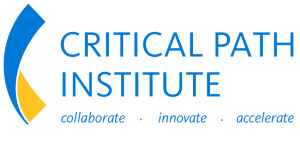New multi-year grant from the the Bill & Melinda Gates Foundation continues work to study pressing public health crisis
 The Critical Path Institute (C-Path), an independent, non-profit organization that works to accelerate the speed of drug and medical product development, today announced it has received a three-year grant renewal from the Bill & Melinda Gates Foundation. The grant will support continued work to advance the science and regulatory pathways leading to more effective and shorter-duration drug treatments for tuberculosis (TB).
The Critical Path Institute (C-Path), an independent, non-profit organization that works to accelerate the speed of drug and medical product development, today announced it has received a three-year grant renewal from the Bill & Melinda Gates Foundation. The grant will support continued work to advance the science and regulatory pathways leading to more effective and shorter-duration drug treatments for tuberculosis (TB).
The grant work is conducted by project teams that operate through the Critical Path to TB Drug Regimens (CPTR) Initiative. CPTR is a cross-sector initiative that was co-founded by C-Path, the Bill & Melinda Gates Foundation, and the Global Alliance for TB Drug Development. The project teams bring together partners involved in the drug development process including scientists, academia, government and pharmaceutical companies.
“We are very grateful for the continued confidence the Bill & Melinda Gates Foundation has in the work of C-Path and CPTR. TB is a pressing global public health issue with growing resistance to current treatment options. The objective of CPTR is to do everything possible to expedite development of new treatment regimens,” said Martha Brumfield, Ph.D., president and chief executive officer of the Critical Path Institute.
TB is a disease caused by Mycobacterium tuberculosis, a bacterium that is contagious and airborne and is the second leading cause of death, after HIV, from a single infectious agent. According to the World Health Organization, 1.3 million people worldwide died from TB in 2012.[1] Multidrug-resistant TB (MDR-TB) is a form of tuberculosis that is resistant to at least two first-line treatment anti-TB drugs.[2] It does not respond to standard treatments and is difficult and costly to treat. MDR-TB was contracted by 450,000 people in 2012 with 170,000 deaths. It is present in nearly every country surveyed by WHO.[3]
“Tuberculosis is a global health issue that still affects people and kills in both developed and developing countries,” said Mario Raviglione, director of the Global Tuberculosis Programme, at the World Health Organization. “In the past decade, we promoted a strategy aimed at reversing the increasing trend of TB by 2015. We are succeeding, although the TB burden remains high. Now, the next step is to eliminate TB as an epidemic by 2035. Therefore, the new ‘EndTB’ strategy approved by the World Health Assembly last May identifies as a top priority acceleration of development and uptake of innovative tools and approaches for better diagnosis, treatment and prevention of TB. That is why the work of the Critical Path Institute is so important.”
About the Critical Path to Drug TB Regimens (CPTR) Initiative The Critical Path to Drug TB Regimens (CPTR) Initiative, launched in 2010, is a broad collaboration of industry, civil society, government, and regulatory officials working together to develop regulatory science that can be used to identify, develop and put through formal regulatory review new methods and tools with a specific application in the development of promising tuberculosis (TB) drug candidate combinations. CPTR was formally launched on March 18, 2010, in Washington, D.C., with a keynote address by U.S. Food and Drug Administration (FDA) Commissioner Margaret Hamburg. Its mission is to address an urgent public health need—with the goal of saving millions of lives.
About the Critical Path InstituteThe Critical Path Institute (C-Path) is an independent, non-profit organization established in 2005 with public and private philanthropic support from the Arizona community, Science Foundation Arizona, and the U.S. Food and Drug Administration (FDA). C-Path’s mission is to catalyze the development of new approaches that advance medical innovation and regulatory science, accelerating the path to a healthier world. An international leader in forming collaborations, C-Path has established seven global, public-private partnerships that currently include over 1,000 scientists from government and regulatory agencies, academia, patient advocacy organizations, and dozens of major pharmaceutical companies. C-Path is headquartered in Tucson, Arizona. For more information, visit www.c-path.org.
[1]World Health Organization
http://www.who.int/features/factfiles/tb_facts/en/index6.html
[2] Centers for Disease Control and prevention
http://www.cdc.gov/tb/publications/factsheets/drtb/mdrtb.htm
[3] WHO Global Tuberculosis Report 2013
http://www.who.int/tb/publications/factsheet_global.pdf?ua=1
SOURCE Critical Path Institute
